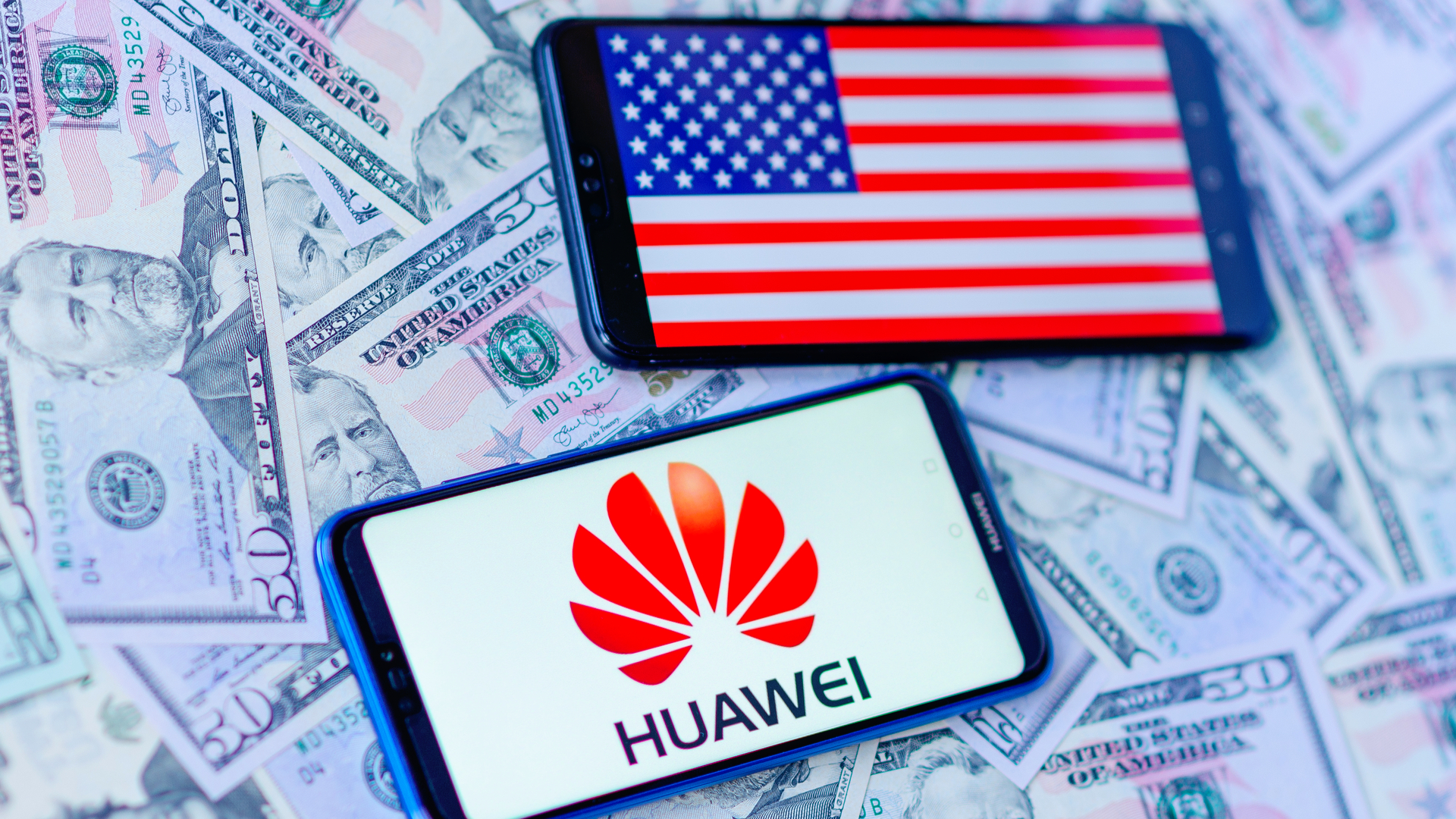US chipmakers take action as Huawei’s ban scorches its revenue targets
Huawei's revenue takes a $25bn hit as it prepares for a 60% reduction in its smartphone shipments


US-based chipmakers including Intel and Qualcomm have reportedly met with the US Commerce Department due to fears about the ramifications of the Huawei ban on their own revenues.
American chip suppliers met with the US Commerce Department in late May and have been quietly lobbying the US government to rethink the parameters of the ban, according to anonymous sources speaking to Reuters.
The restriction on trade between Huawei and American companies could adversely affect the sales and revenues of US companies that use Huawei components in their own products.
The argument presented by chipmakers is that the alleged security flaws are only present in Huawei's 5G infrastructure and not in the commonly-available equipment from the company's other arms such as its smartphone and server business.
"This isn't about helping Huawei. It's about preventing harm to American companies," one of the sources said.
In the ban's current state, all US suppliers are forbidden from supplying to Huawei, the world's largest telecoms equipment company and the one with a large footprint in the world's telecoms infrastructure.
One of the sources said Qualcomm wants to continue selling chips to Huawei for consumer devices such as smartphones and watches as these devices pose less of a threat to national security than its 5G radios, for example.
Sign up today and you will receive a free copy of our Future Focus 2025 report - the leading guidance on AI, cybersecurity and other IT challenges as per 700+ senior executives
The ban could present a significant threat to US businesses that rely on Huawei for regular business. There are fears that revenues could drop, much like Huawei's has already.
Huawei founder and CEO Ren Zhengfei said on Monday that the company's revenue forecast for the next two years has fallen by $25 billion, likening the company to a badly damaged plane.
Ren said at a press conference at the company's headquarters that the firm's revenues will be around $100 billion for the next two years which is down $5 billion from its 2018 earnings and significantly lower than the original $125 billion forecasts for 2019.
Ren's company is also preparing for a 40-60% reduction in international smartphone shipments, the first quantifiable indicator of the ban's effect on its phones, as Huawei attempts to re-market itself with shifting goals for domestic dominance, according to Bloomberg.
The company's flagship overseas Honor 20 phone, due for a UK release on 21 June will have its sales closely monitored by Huawei and shipments will be culled if it sees an expectedly poor sales performance. Two of France's major carriers have already abandoned plans to support the new model, according to sources.
The company is also reportedly resetting its goals for the years going forward to mitigate the effects of President Trump's executive order. Huawei has now set its sights on acquiring 50% of the domestic market share for smartphones in China, the report said.
The latest news adds more weight to the report earlier in June which suggested Huawei was planning to reduce its smartphone manufacturing targets as it felt the bite of the US ban. At the time of Huawei's blacklisting by the United States, Ren said that the ban "may slow, but only slightly" the company's growth.
IT Pro approached Huawei for comment but it declined to offer anything at this time.

Connor Jones has been at the forefront of global cyber security news coverage for the past few years, breaking developments on major stories such as LockBit’s ransomware attack on Royal Mail International, and many others. He has also made sporadic appearances on the ITPro Podcast discussing topics from home desk setups all the way to hacking systems using prosthetic limbs. He has a master’s degree in Magazine Journalism from the University of Sheffield, and has previously written for the likes of Red Bull Esports and UNILAD tech during his career that started in 2015.
-
 The modern workplace: Standardizing collaboration for the enterprise IT leader
The modern workplace: Standardizing collaboration for the enterprise IT leaderHow Barco ClickShare Hub is redefining the meeting room
-
 Interim CISA chief uploaded sensitive documents to a public version of ChatGPT
Interim CISA chief uploaded sensitive documents to a public version of ChatGPTNews The incident at CISA raises yet more concerns about the rise of ‘shadow AI’ and data protection risks
-
 IDC: The business value of IBM Maximo
IDC: The business value of IBM MaximoWhitepaper Integral to the transformation of asset management
-
 UK firms are pouring money into AI, but they won’t see a return on investment unless they address these key issues
UK firms are pouring money into AI, but they won’t see a return on investment unless they address these key issuesNews An SAP report projects increased AI investment, but cautions that too many organizations are taking a fragmented approach
-
 Optimise CX and accelerate business growth through your voice network
Optimise CX and accelerate business growth through your voice networkwhitepaper Protecting the human experience in a digital world
-
 Enterprises are doubling down on IT optimization strategies – and it’s delivering huge financial returns
Enterprises are doubling down on IT optimization strategies – and it’s delivering huge financial returnsNews Organizations that have cracked IT cost optimization and innovation reap the rewards both financially and in terms of time to market.
-
 IDC InfoBrief: Sustainability doesn’t need to be all stick and no carrot
IDC InfoBrief: Sustainability doesn’t need to be all stick and no carrotwhitepaper CIOs are facing two conflicting strategic imperatives
-
 How to empower employees to accelerate emissions reduction
How to empower employees to accelerate emissions reductionin depth With ICT accounting for as much as 3% of global carbon emissions, the same as aviation, the industry needs to increase emissions reduction
-
 The Forrester Wave™: API management solutions
The Forrester Wave™: API management solutionsWhitepaper The 15 providers that matter the most and how they stack up
-
 Former TSB CIO fined £81,000 for botched IT migration
Former TSB CIO fined £81,000 for botched IT migrationNews It’s the first penalty imposed on an individual involved in the infamous migration project